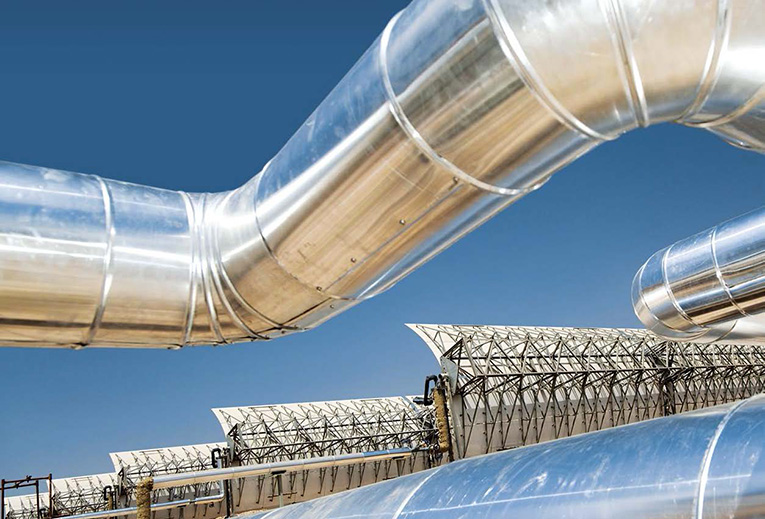The supply chain
Snam operates transparently and absolutely respectfully for free competition by committing itself to engage the suppliers to achieve high and enduring performance levels, with a view towards mutual growth and creation of value.
Growing with suppliers
As at 31.12.2017, 1,612 suppliers had been qualified and 403 suppliers were in the process of renewing their qualifications or qualifying ex-novo.
Snam’s suppliers are mainly small and medium-sized Italian enterprises (SMES) located in almost every region of the Country, consistently with the company’s distribution throughout the territory. In 2017, in fact, the SMES to which Snam assigned work amounted to 416 out of a total of 574 active suppliers. Approximately 800 supply contracts were stipulated, 65% of which in favour of SMES, for a total of approximately €844 mln of which more than 92% was in Italy and 7% in Europe. The change in the supplied amount compared to the previous year’s amount must take into account the cyclical nature of the procurement process, in particular the fact that the 2017 procurement plan was also covered by multi-year contracts already closed in previous years, with the procured amount allocated to the year in which they were closed.
Of all the goods purchased, the most important is steel that is used mainly for piping and fittings, which recorded more than 14,300 supplied tonnes.
| Download XLS (15 kB) |
|
2015 |
2016 |
2017 |
||
|
|||||
Amount of purchases |
1,266 |
1,359 |
844 |
||
Procurement by business segment (%)
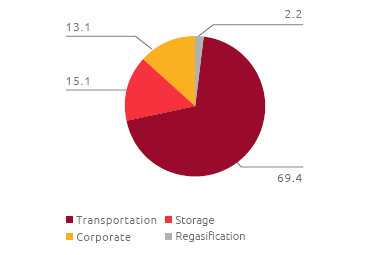
Procurement by goods type (%)
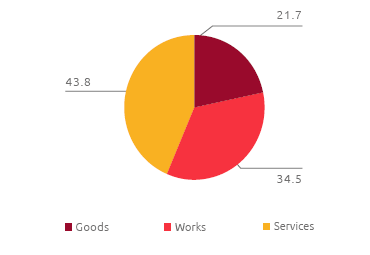
Geographic breakdown of procurement in Italy (%)
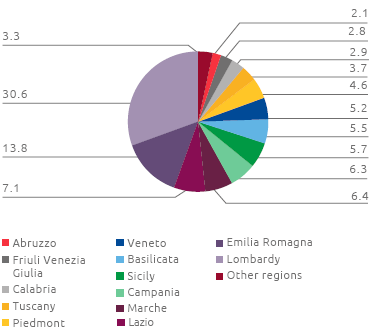
Social-economic effects of Snam’s purchases
Snam’s procurement of goods, works, and services in Italy is a significant driver for the country’s employment and economy.
In 2017, the value of purchases, referring to the goods, works and services assigned to Italian companies or work carried out across the national territory, amounted to approximately €787 mln. This allowed to support 8,090 external workers and stimulate economic activity (production value) for a total of about €1.8 bln and and added value of €0.8 bln.
The data shown are the result of a special study carried out by a specialised company
A responsible approach to suppliers
Snam promotes fairness in its relationships, anti-corruption, safe working conditions, the protection of human rights and environmental protection.
Snam adopts an “expanded” management model based on the engagement and empowerment of the players in the supply chain: all the suppliers and subcontractors are encouraged to compete and operate properly, improving their performance in the area of the risk mitigation, innovation of management processes, increased operational efficiency and promotion of responsible governance procedures.
In particular, Snam, always keen on spreading a culture of legality and maintaining efficient anti-corruption measures, requires suppliers to adhere to the Ethics and Integrity Agreement, an undertaking to maintain transparent relations and meet strict requirements with regard to business conduct, also engaging subcontractors in this same quest.
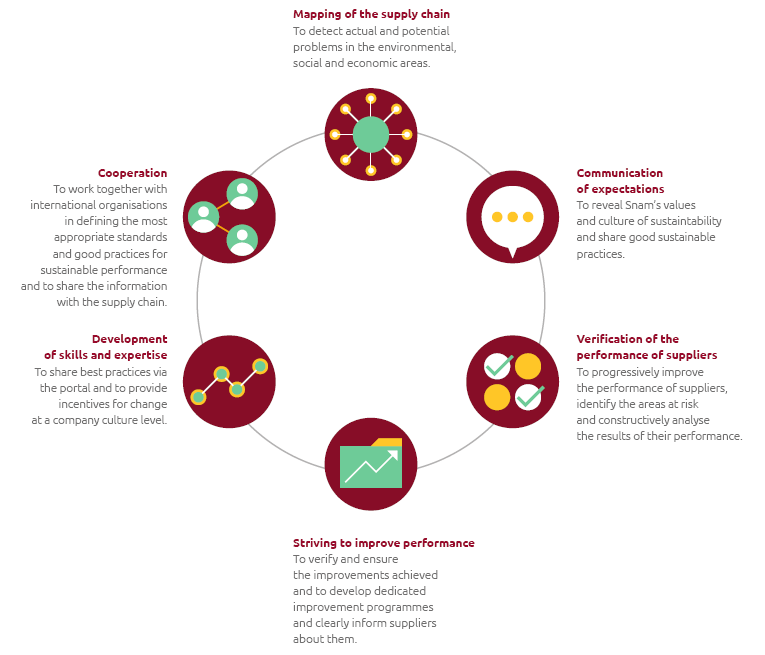
Quality |
Not only quality, price and reliability requirements, but also commitment to process innovation |
Safety |
Disseminating the culture of prevention and attention to worker’s health and safety |
Values |
Transmitting and sharing values: legality, fairness, transparency and respect for free competition and protecting all forms of human rights |
Transparency |
Fairness, traceability and transparency in trade relations and in conducting one’s business |
Continuous improvement |
Striving for continuous improvement, mutual growth and the creation of shared value |
Sustainability |
Reducing environmental and social impacts and risks inherent to the supply chain |
